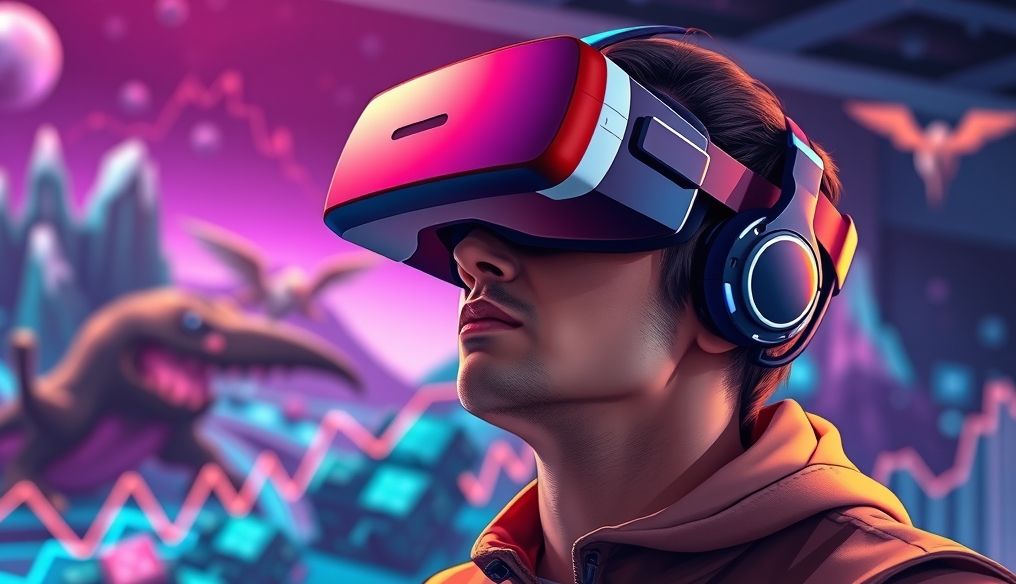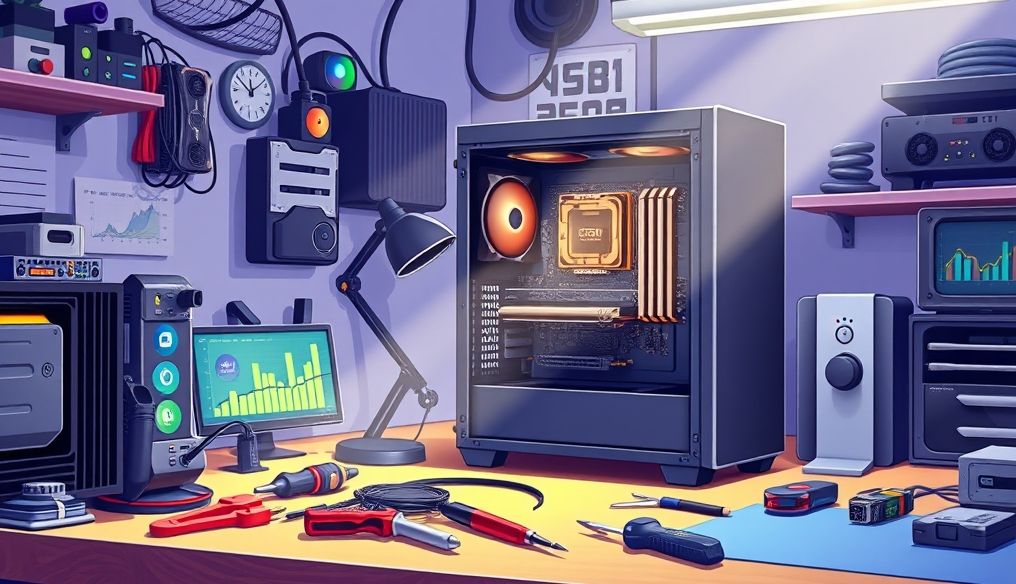Is Virtual Reality (VR) the Future of Gaming, or Just a Passing Fad?
Virtual Reality (VR) has generated a lot of buzz in the gaming world, promising immersive experiences like never before. But, is it truly the future of the industry, or just an innovative technology that will fade away? This article explores the potential of VR in gaming, the challenges it faces, and its potential impact on the future of entertainment.
What is Virtual Reality (VR) and How Does it Work?
Virtual Reality (VR) is a technology that creates an interactive virtual environment that users can explore and interact with using VR headsets and controllers. These headsets display separate 3D images for each eye, creating a sense of depth and immersion. Controllers allow the user to interact with the virtual environment, such as picking up objects or moving around in space.
Basic Components of a VR System:
- VR Headset: Displays images and tracks head movement.
- Controllers: Allow interaction with the virtual environment.
- Computer or Console: Runs the software and provides power.
- VR Software: Games and applications that run in the virtual environment.
Advantages of Virtual Reality in Gaming
Virtual Reality offers several advantages that can change the way we play games:
Full Immersion:
VR provides a more immersive gaming experience than traditional games. The feeling of being physically present in the game world makes the experience more realistic and exciting.
Enhanced Interaction:
VR controllers allow for natural and intuitive interaction with the virtual environment, increasing the sense of control and realism.
New and Innovative Experiences:
VR opens the door to new types of games that were not possible before, such as realistic simulation games and horror games that evoke intense fear.
Challenges Facing Virtual Reality in Gaming
Despite its immense potential, Virtual Reality in gaming faces several challenges:
High Cost:
VR headsets and the powerful computers needed to run them are still relatively expensive, making them inaccessible to many gamers.
Motion Sickness and Discomfort:
Some users experience dizziness or nausea when using VR, especially in games that require rapid movement.
Limited Content:
There is still a shortage of high-quality games and applications designed specifically for Virtual Reality.
Comfort and Design:
VR headsets can be uncomfortable to use for extended periods, and their design may not be appealing to everyone.
Impact of Virtual Reality on Different Game Genres
Virtual Reality has the potential to transform different game genres:
Shooter Games:
VR can make shooter games more realistic and exciting, as players can aim and shoot using their hands.
Simulation Games:
VR provides a highly realistic simulation experience, whether it's flight simulation, driving, or even surgical operations.
Puzzle and Adventure Games:
VR can make solving puzzles and exploring worlds more enjoyable and interactive.
Horror Games:
VR increases the intensity of fear and excitement in horror games, making the experience more terrifying and realistic.
Leading Companies in the Field of Virtual Reality Gaming
Many companies are investing in the development of VR technologies for gaming:
Meta (Oculus):
Meta, the parent company of Facebook, is one of the leading companies in the field of VR, with Oculus Quest headsets.
Sony (PlayStation VR):
Sony offers PlayStation VR, designed specifically for PlayStation consoles.
HTC (Vive):
HTC offers Vive headsets, known for their advanced technologies and accurate motion tracking.
Valve (Valve Index):
Valve, the developer of games like Half-Life, offers the Valve Index headset, considered one of the best VR headsets available.
The Future of Virtual Reality in Gaming
The future of Virtual Reality in gaming looks promising, with continuous advancements in technology and increasing interest from companies and developers. VR headsets are expected to become cheaper and more comfortable, and more high-quality games and applications will become available. We may also see greater integration between VR and other technologies, such as artificial intelligence and augmented reality.
Future Expectations:
- Improve Image Quality and Performance: Increase screen resolution and reduce latency.
- Reduce Cost: Make VR accessible to a wider audience.
- Increase Content: Develop more innovative games and applications.
- Improve Comfort and Design: Make VR headsets more comfortable for extended use.
Conclusion: Is Virtual Reality the Future of Gaming?
Virtual Reality has the potential to transform the way we play games, offering immersive and innovative experiences like never before. Despite the current challenges, the continuous advancements in technology and increasing interest from companies and developers indicate that VR may play a significant role in the future of gaming. However, it is unlikely that VR will completely replace traditional games; rather, it is likely to be a valuable addition to the world of entertainment, offering new and exciting options for players.




